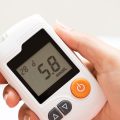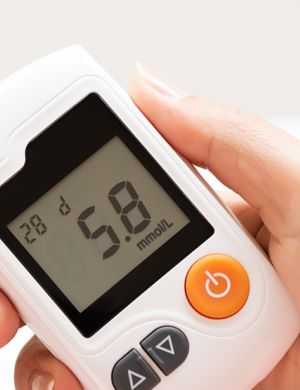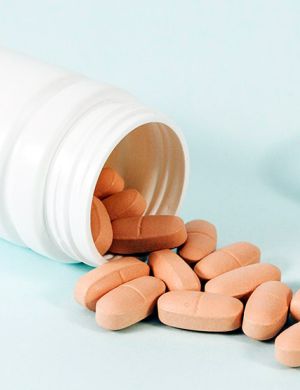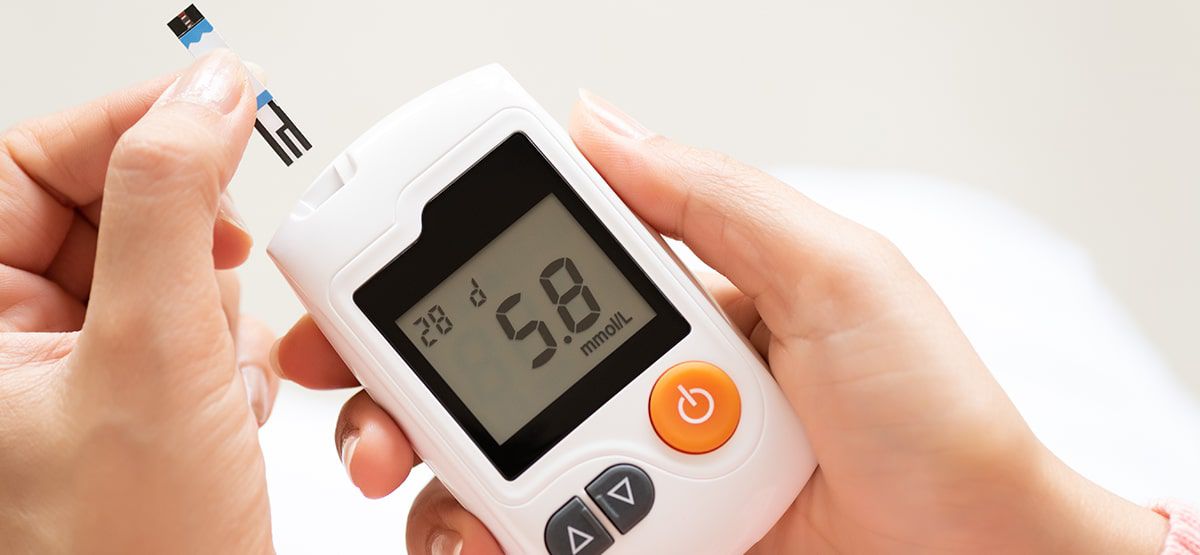
Medical Devices-Asia and ROW Regulatory News-Nov. 2023
ASIA
CHINA
NMPA released Guidance Draft for comments on 54 guiding principles for registration review of Class II medical devices including the “Guiding Principles for Registration Review of Electric Photography Flatbeds”
According to the relevant requirements of the Medical Device Registration Review Guidelines Project Plan of the State Food and Drug Administration, our center organized the preparation of 54 second-category guidance reports (Annex 1) including the “Electric Photography Flat Bed Registration Review Guidelines (Draft for Comments)”. A draft for solicitation of opinions has been formed and will be publicly solicited online from now on. If you have comments and suggestions, please fill out the feedback form (Attachment 2) and provide feedback to the corresponding contact person (Attachment 3) before November 23, 2023.
NMPA released Guidance Draft for comments on two medical device registration review guidance reports including the “Dental Implant (System) Registration Review Guidelines (2023 Revision)”
These guidance reports apply to dental implants (systems) that remain in the oral cavity following surgical procedures. Not suitable for custom implants (systems). For those that change the scope of application or have new technical characteristics (such as the adoption of new working principles, materials, structural designs, surface treatments, and production processes), please refer to the applicable parts of this guidance report.
This guidance report is applicable to gutta-percha tip products used to fill or seal the pulp chamber during root canal treatment. Gutta-percha tips are generally composed of gutta-percha, zinc oxide, barium sulfate, etc. For root canal filling tips made of unusual materials, please refer to the applicable sections of this guidance report. This guidance report does not apply to specially designed and innovatively designed products
NMPA released Guidance Draft for comments on four medical device registration review guidance reports including the “Intervertebral Fusion Device Registration Review Guidelines (2023 Revision)”
Its is applicable to non-degradable intervertebral cages placed at the intervertebral disc position between adjacent vertebral bodies and can be used in conjunction with spinal internal fixation implants. For additively manufactured intervertebral fusion cages, please follow the relevant content of the “Registration Review Guidelines for Additively Manufactured Intervertebral Fusion Cages”.
Its is applicable to posterior spinal internal fixation systems for the purpose of spinal fusion, which usually include components such as metal spinal rods, fixation plates, pedicle screws, transverse connectors, laminar hooks, fasteners, connectors, spacers, etc.
Its is applicable to metal cable/cable products intended for binding and internal fixation of limbs. This type of product usually consists of cables (single-stranded metal wires)/cables (multi-stranded metal wires), locking buckles (pressing type, top wire tightening type), and positioning blocks.
Its is applicable to laminoplasty systems with the intended use of laminoplasty after decompressive enlargement of the spinal canal. This type of product usually consists of a lamina fixation plate and fixation screws, and is usually made of pure titanium, titanium alloy and other materials.
General Affairs Department of the State Food and Drug Administration released Guidance Draft for comments on the “Management Requirements for the Temporary Import and Use of Clinically Urgent Medical Devices in Medical Institutions”
NMPA has release the draft guidance on management requirements for the temporary import and use of clinically urgent medical devices in medical institutions. This management requirement is applicable to medical institutions that temporarily import and use products due to special clinical needs of patients. Products that have been marketed abroad but have not been approved for marketing in my country are used to prevent and treat serious life-threatening diseases for which there is no effective treatment or prevention method in China. Equipment, but does not include equipment that should be included in the configuration licensing management of large medical equipment.
Medical institutions should have provided diagnosis and treatment services for difficult and critical diseases for many years in the corresponding treatment fields, have the ability to treat difficult and critical diseases, and have qualifications such as national medical centers.
Draft for Comments: Notice on publicly soliciting opinions on five guiding principles including the “Guiding Principles for Registration Review of Disposable Hydrocephalus Shunts (2023 Revised Edition)”
The absorbable surgical sutures covered by this guidance report (hereinafter referred to as absorbable sutures) are processed from collagen or synthetic polymers from healthy mammals and can be absorbed by human tissues. The guidance report is applicable to indwelling needles inserted into the human peripheral blood vessel venous system and used in conjunction with suitable infusion equipment for infusion/injection of liquids. The product can be left in the venous blood vessels for a period of time.
The hemodialysis tubing to which this guidance report applies refers to the extracorporeal circulation tubing used in conjunction with hemodialyzers, hemodialysis filters, hemofilters, hemoperfusers and other devices during hemodialysis, hemodiafiltration and other treatments.
The guidance report is applicable to the preparation of registration application materials and product technical review reference for hydrogel dressing products managed as Class III medical devices.
Draft for Comments: Notice on publicly soliciting opinions on the “Guiding Principles for Writing Instructions for Medical Devices”
This guidance report is applicable to medical device instructions for registration or filing, excluding in vitro diagnostic reagents.
This guidance report only offers general requirements for the content of medical device instructions and does not stipulate specific requirements for specific products. The examples given in the guidance reports are for reference only and should be refined based on specific circumstances by relevant regulatory authorities and registrants/filers.
Notice on the public solicitation of opinions on “Guiding Principles for Registration Review of Laparoscopic Surgical Surgery Systems Part 3: Three-dimensional Endoscopy (Draft for Comments)”
This guidance report is applicable to three-dimensional endoscopes (hereinafter referred to as endoscopes) in multiport laparoscopic surgery systems (hereinafter referred to as surgical systems). It is applicable to those with a robotic arm interface that can be installed on the robotic arm and controlled by the system. Special three-dimensional endoscopes are also suitable for general-purpose three-dimensional endoscopes that can be used independently without being controlled by a robotic arm. For three-dimensional endoscopes used in single-port laparoscopic surgery systems, please refer to the applicable parts of this guidance report.
Notice from the Device Review Center of the State Food and Drug Administration on the release of guiding principles for clinical evaluation registration review of artificial intelligence-assisted testing medical devices (software) (No. 38, 2023)
Artificial intelligence medical devices can be divided into assisted decision-making and non-assisted decision-making from the perspective of intended use. Artificial intelligence-assisted detection products are based on computer artificial intelligence algorithms and can include functions such as pattern recognition and data analysis. They prompt doctors to pay attention to possible abnormalities/lesion areas through identification, marking, highlighting, etc., thereby assisting clinicians in making corresponding diagnosis and treatment. Decision-making products can be independent software or embedded software; the classification code is 21-04-02, and the management category is Category III.
Taking auxiliary detection and auxiliary detection products for colon polyps as examples (see attachment for details), the recommendations for consideration of specific elements in clinical trials of artificial intelligence-assisted detection products are explained. Products of the same type can refer to the relevant applicable sections.
Notice on the public solicitation of opinions on the “Guiding Principles for Registration Review of Reprocessing Instructions and Confirmation Methods for Reusable Medical Devices (Draft for Comments)”
This guidance report is applicable to reusable medical devices, mainly including the following two situations:
- Reusable medical devices that are initially provided to users in sterile form and require users to reprocess (i.e. clean, disinfect or sterilize) after first use and before use by subsequent patients.
- Reusable medical devices that are initially provided to the user in a non-sterile form and require the user to process (i.e. clean, disinfect or sterilize) for first use and reprocess after each use.
This guidance also is applicable to reusable medical devices that are intended for use by a single patient and are expected to be reprocessed before each use. Single-use medical devices that are provided in a non-sterile form and require handling by the user before use may refer to the applicable parts of this guidance report. This guidance report does not provide suggestions on design, testing or reprocessing validation for a specific medical device. If the relevant special guidance reports provide relevant suggestions for a specific medical device, the registration applicant should abide by the special guidance reports.
Notice on publicly soliciting opinions on five registration review guiding principles including the “Positron Emission Magnetic Resonance Imaging System Registration Review Guidelines (Draft for Comments)”
This guidance report is applicable to PET/MR systems. PET/MR can be divided into split type, PET plug-in type and fully integrated type according to different product structures. The PET/MR system referred to in this guidance report is fully integrated/one-piece PET/MR, split type and plug-in type.
The Imaging system of single photon emission and X-ray computed tomography (herein referred to as “SPECT/CT”) combines the single photon emission computed tomography system (SPECT) and X-ray computed tomography. System (CT) that offers registration and fusion of physiological and anatomical information.
This principle is applicable to ventilators. According to the “Medical Device Classification Catalog”, the management categories are three categories, and the classification codes are 08-01-01 therapeutic ventilators, 08-01-02 emergency and transport ventilators, and 08-01-03 High-frequency ventilator, 08-01-04 household ventilator (life support).
The nitric oxide therapy device delivers controllable concentration of nitric oxide gas to the patient’s respiratory tract, while monitoring the concentrations of nitric oxide, nitrogen dioxide, and oxygen, and providing corresponding alarm functions. This guidance report is applicable to the registration application for mobile medical devices, including Class II and Class III medical devices (including in vitro diagnostic medical devices).
SINGAPORE
Consultation on GN-20 Guidance on Clinical Evaluation
The Medical Devices Cluster (MDC) has released a draft of GN-20 Guidance on Clinical Evaluation for stakeholders’ consultation. The updates present HSA’s position on the use of real-world data in medical device clinical evidence and also some specific clarifications on clinical evaluation for software medical devices. We have also aligned the contents with IMDRF guidance on clinical evaluation, where applicable.
These ensure that the guidance reflects the latest thinking on essential topics relating to clinical evaluation. We would like to invite our stakeholders to provide feedback on the updates to GN-20 Guidance on Clinical Evaluation.
The Consultation period for this report is from 27 October 2023 to 30 November 2023. Please email your feedback using the prescribed feedback form to HSA_MD_INFO@hsa.gov.sg by 30 November 2023 and with “Feedback on GN-20” in the email subject header.
MALAYSIA
Announcement: implementation of the use of electronic medical device registration certificate beginning November 1, 2023
The Medical Device Authority (MDA) will implement the use of electronic medical device registration certificates from November 1, 2023.
The establishment can download the device registration certificate medicine from the MeDC@St2.0+ system after the application is complete (status complete) and payment of the registration fee has been cleared.
For applications approved before November 1, 2023, the establishment will receive a physical medical device registration certificate such as the existing process and at the same time the electronic medical device registration certificate can be loaded down from the MeDC@St2.0+ system. The establishment must take a certificate registration of physical medical devices at the MDA office after 7 working days from date of application completion (status complete).
MDA to cease the issuance of certificate of free sale (CFS) for export only medical device
Effective 1st October 2023, the Medical Device Authority of Malaysia has informed that a Certificate of Free Sale (CFS) will only be released for registered medical devices, following the announcement made by Chief Executive of MDA during MDA High Performance Project on 7th June 2023.
With this move MDA ceases the issuance of CFS for export only medical devices under the Circular Letter of Medical Device Authority No. 4 Year 2018.
Instead, MDA will issue an Export Certificate for establishment who wishes to export the export only medical device from Malaysia as part of the process to register or import a product into that country. The issuance of Export Certificate is not a mandatory requirement under the Act 737 rather it is a service to facilitate the export of medical devices from Malaysia.
Important announcement medical device advertisement application 2023
From 1 December 2023, all advertisement applications that have been completed and completed with a checklist must be sent via email to advertisement@mda.gov.my. Applications received in hard copy will not be processed.
Each advertisement application must be accompanied by a one-time payment of the processing fee via bank draft or Bayar Now. Cash and online payments will not be accepted. Inaccurate payment information will be returned. A receipt will be released after receipt is complete and any processing fees will not be refunded.
ROW
SAUDI ARABIA
SFDA released Guidance on Requirements on Importation and Shipments Clearance of Medical Devices
SFDA (Saudi Food & Drug Authority) released guidance report specify and clarify the requirements of importation and shipments clearance of medical devices. guidance report covers requirements of Importation for Circulation of Medical Devices, Importation of Used Medical Devices, Importation for Local Manufacturing, Importation for Clinical Studies, Importation for Research and Education, Importation for Demonstration, Importation for National Emergency, Importation for Humanitarian Purposes (including Custom-Made Medical Devices), Personal Importation, Free Sale Certificate.
MEXICO
COFEPRIS is promotes new Regulatory Certainty Strategy for medical devices
The main objective of the strategy is to strengthen capacities in the regulation of these fundamental inputs for public health.
- One of the main objectives is to strengthen the linkage mechanisms with companies in the sector.
- With a market value of more than $16 billion, Mexico is one of the leading global suppliers of medical devices.
The Regulatory Certainty Strategy proposal aims to establish a work agenda that covers the period 2023-2026 and that covers a comprehensive vision aligned with the highest international standards. In addition, it covers five commitments that will be implemented over a period of four years, along with high-impact measures to build a fair, agile and transparent regulatory environment.
Modifications to health registration conditions, regulatory simplification strategy
The Federal Commission for the Protection against Sanitary Risks (Cofepris) streamlines the management of procedures for modifications to the health registration conditions (MCRS) by implementing new classification criteria based on agency standards international regulatory standards and executes actions to obtain an immediate resolution.
Cofepris simplified the classification criteria for MCRS, dividing them into minor, moderate and major. This is applicable to procedures related to biotechnological, biological medicines and vaccines; allopathic, herbal, homeopathic and vitamin medicines, as well as medical devices.
Minor and moderate classifications include updates to the tax address or addition of a new distributor, since they are administrative procedures that do not compromise the stability of the drug. In the case of the higher classifications, there are those that are critical at a chemical, manufacturing and quality control level.
AUSTRALIA
Guidance on the format requirements for dossiers: General dossier requirements
General dossier requirements give assistance for an applicant, to meet requirements for the dossier of information which send to the authorities for an evaluation in support of the following types of applications:
- To register a medicine (prescription, OTC or complementary) on the ARTG
- To include a biological on the ARTG that requires evaluation of information
- To include a medical device (including IVD) on the ARTG if you have been advised that it will be audited and requested to provide information for the audit
- To list an assessed listed medicine (where information is required for evaluation) For medical device (including IVD) conformity assessment certification
- For evaluation of new ingredients for use in listed medicines
- To vary the ARTG record which requires supporting information
Answers to frequently asked questions about off-label use of medical devices
The Australian Register of Therapeutic Goods (ARTG) covers therapeutic goods with specific indications or intended uses. The use outside of this is considered off label.
Special Access Scheme Category B (SAS B)
Special Access Scheme Category B (SAS B) approval is not required, nor does the TGA have authority to grant approval, for a sponsor to supply a medical device included in the ARTG. This covers circumstances where the device is for ‘off-label use’.
Advertising device ‘off-label use’
Sponsors must make sure advertising material matches the device’s intended use. This use is what the sponsor certified in their ARTG application (subsection 41FN (5) of the Act). As such, sponsors cannot advertise uses that are not approved and included in the ARTG entry.
Sponsors should be aware that the definition of ‘advertise’ in the Act.
This covers any:
- Statement;
- Pictorial representation; or
- Design
ISRAEL
Administrative extension of validity for registration certificates in the medical equipment register
In view of the war situation and following the regulatory changes and validity extensions given in Europe to regulatory approvals, the Ministry of Health has been prepared to ensure a regular supply of medical equipment in Israel. Therefore, we would like to clarify that the automatic administrative extension of validity given on March 29, 2023 for AMR approvals (registration approvals in the medical equipment register) will be extended for an additional period of time, according to the following details:
- Medical equipment registered in the register of medical accessories and devices maintained by the Ministry of Health and the validity of the approval of the Amr has expired between December 1, 2022 and December 30, 2024.
- Medical equipment for which registration renewal approval was granted, the expiration date of which is between 12.1.2022 and 12.30.2024.
The validity of these permits will be extended until December 31, 2024, without the need to contact the Ministry of Health, unless the permit has been canceled, or a decision has been made to refuse to renew it.
It is important to emphasize that it is the registrant’s responsibility to have in his possession valid regulatory approvals, or a letter attesting to the extension of validity of the regulatory approvals in accordance with the directive of the European Union (as long as he has regulatory approvals from recognized European countries). Due to the extension of the validity of the aforementioned certificates, there may be inaccuracies in the information systems on the website of the Ministry of Health.
BRAZIL
ANVISA and ANMAT sign agreement on easing regulatory requirements for low-risk medical devices
ANVISA and the National Administration of Medicines, Food and Medical Technologies (ANMAT) signed the “Agreement on Mutual Recognition of Free Sale Certificates and Certificates for Foreign Country for Medical Devices of Risk Classes I and II and Medical Devices for In Vitro Diagnosis of Risk Classes A and B”.
The agreement represents an advance in cooperation and convergence between regulatory authorities in Brazil and Argentina, in addition to providing opportunities for increased bilateral trade in lower-risk medical devices, by simplifying procedures with health authorities.
ARGENTINA
ANMAT and ANVISA signed the first Mutual Recognition agreement on certificates for Medical Products
This agreement between the regulatory agencies of Argentina and Brazil strengthens confidence in decisions to protect the health of the population and will imply greater agility in processing for this category of products.
It is specifically an “Agreement for Mutual Recognition of Free Sale Certificates and Certificates for Foreign Countries for Medical Devices Risk Classes I and II and Medical Devices for In Vitro Diagnostics of Risk Classes A and B”, which implies the strengthening of trust in the decisions of the Agencies and recognition of the efforts that each one makes to protect the health of the population. At the same time, it will optimize regulatory processes in both agencies.
Don’t miss out! Click here to stay in touch.
Categories
- Biopharma (59)
- Consumer Health (22)
- Cosmetics (11)
- Diagnostics (5)
- Digital Health (8)
- Food (2)
- Medical Device (113)
- OTC (5)
- Regulatory Intelligence (13)
- Standards (41)
Recent Blogs
Get the latest updates from Vistaar

Related Posts
CONNECT WITH US

Let's talk about how Vistaar can help you





